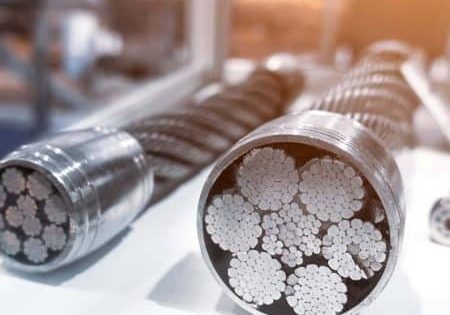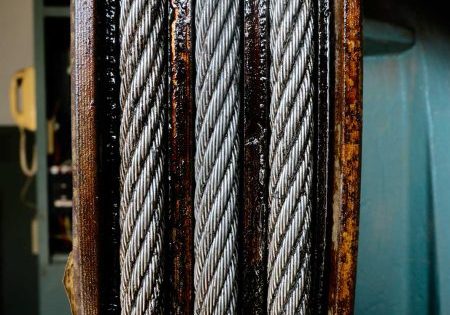Reliable Brakes for Gearless Machines
Jul 17, 2023
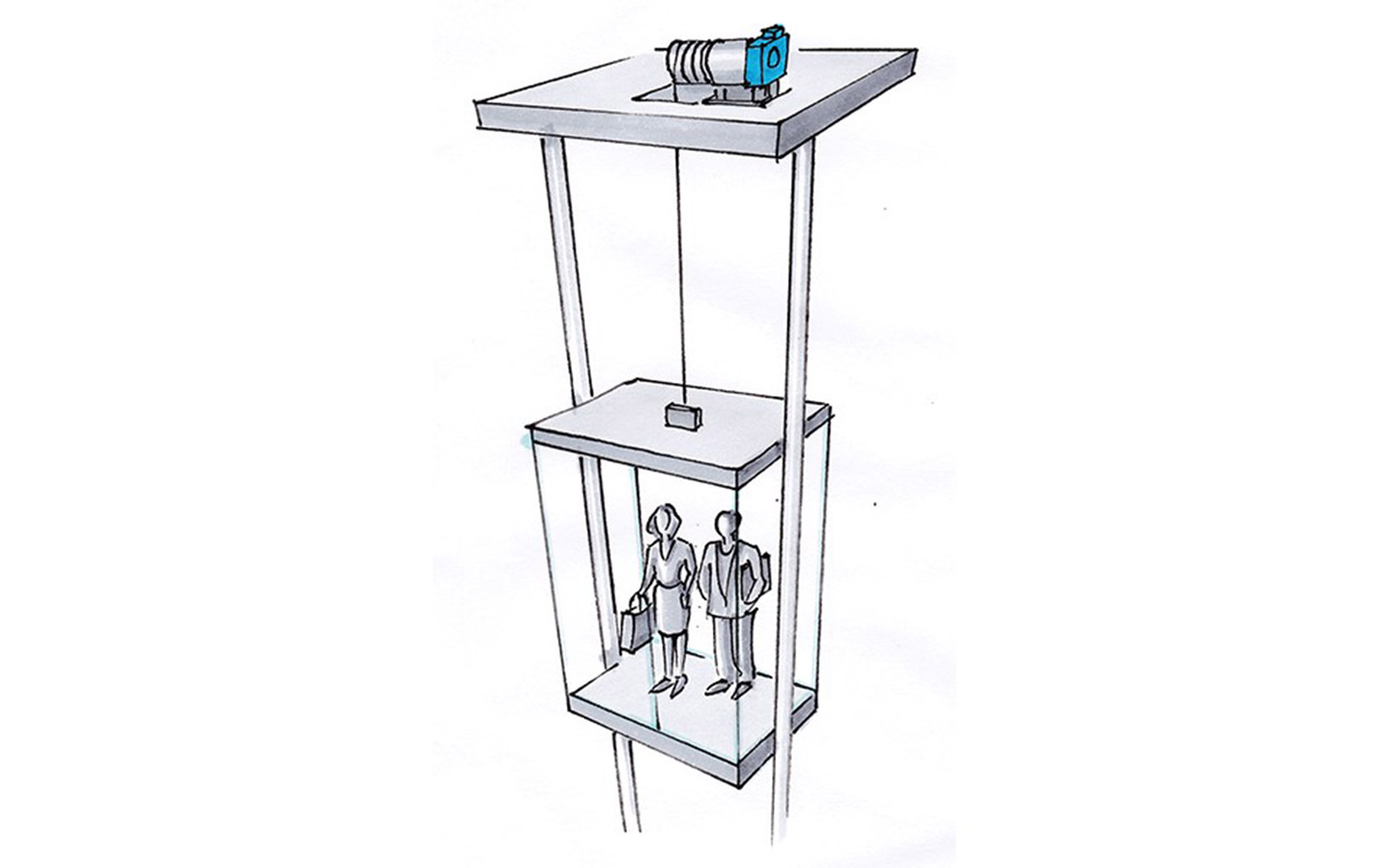
No high-rise building without elevators – the architecture of our cities in particular would be inconceivable without safe vertical passenger transportation. For this to be comfortable and risk-free, the safety of passengers must have top priority.
by Sebastian Steinert
Today, gearless elevator drives are state of the art – here, every component counts, but the integrated safety brake should be a particular focus. It must meet the highest quality requirements. Nevertheless, due to the intense global competition in the elevator industry, price is increasingly playing an important role even for safety- relevant components such as the brake systems. How the right brake supplier can still be selected is shown by mayr® power transmission from Mauerstetten.
Passenger elevators are still among the safest means of transportation today. The accident and error statistics prove that products with a high technical quality are used here that have been reliably tested in advance – and this must remain the case in the future. Because it is precisely in the area of elevator brakes that the right product selection is becoming increasingly difficult. Just about ten years ago, only a few brake manufacturers, mostly medium-sized companies with a wealth of experience, were active on the market. Their expertise guaranteed quality and reliability. However, the globalization of the market for elevator drives, the enormous intensity of competition and the associated problems with replicas have led to enormous competitive pressure in recent years, even for safety-critical components such as elevator brakes. Whereas in the past the consensus in the industry was still a clear commitment to reliability and top quality, today market participants repeatedly cite price as the most important decision-making criterion in discussions. The rapid developments here harbor a high potential for danger. Young, new market participants are now offering products on the world market at low prices and therefore have an advantage in such negotiations. However, this is offset by the low level of experience of these suppliers. They are increasingly relying on gearless technology. But it is precisely here that reliable elevator brakes from manufacturers with experience are indispensable. Inexpensive brakes that compromise on the materials used and on safety represent an incalculable risk.
Specify and Test Brakes
Cooperation with major, globally active elevator manufacturers continues to show that these companies are increasingly focusing on quality components and are strongly oriented toward the European EN 81 elevator standard – even where this is not mandatory. The leading manufacturers are also making considerable efforts to specify the requirements for safety-related components precisely and to verify them in elaborate test procedures. In addition, these companies have corresponding input from the market due to their day-to-day field experience, which makes it easy to constantly detail the products or product requirements further and to include critical points in the qualification process.
However, this cannot be fully transferred to the supplier industry. Smaller elevator companies and motor manufacturers, for example, who do not receive appropriate feedback through field data on their own and do not have the resources to employ a large engineering team, usually work with simpler means to specify and test a brake. They also do not have the necessary reach and often only supply regional areas of operation where certain issues may not be very common. So, if such a drive manufacturer needs reliable brakes, they will look at the issues they are familiar until that point. In the further course of business development in other markets, however, they may very well be confronted with other conditions that raise new problem areas.
So, what criteria can a manufacturer of elevator motors – especially in gearless technology – apply to select a reliable brake?
Manufacturing Expertise and Certified Quality Process
First of all, the possible supplier should be looked at closely, which is actually a standard procedure in procurement. A company does not qualify by the mere fact that it can manufacture brakes. Appropriate manufacturing expertise and a certified quality process are indispensable prerequisites, as is sound experience with brakes for elevator drives. To this end, the company must have a large number of elevator brakes on the market over many years, ideally worldwide and in as many different environments as possible. Only then is it able to know the risks at all and to deliver reliable products. After all, prototype tests, in which elevators are tested once for functionality, tell nothing about the quality of the brakes in large quantities over their entire service life. “Each individual brake must be delivered in the required quality.
This requires appropriate test routines,” explains Johann Eberle, Director Sales and Marketing at mayr® power transmission. “Because the risk often lies in the fact that manufacturers with less experience don’t know what they don’t know, to put it this way. To ensure the necessary safety on a permanent basis, clear processes, comprehensive testing facilities, many years of experience and highly qualified employees are indispensable prerequisites. This costs money, but it is the only way to achieve safety. In the future, it will not be the cheapest but the most reliable suppliers that will prevail in the elevator market.”
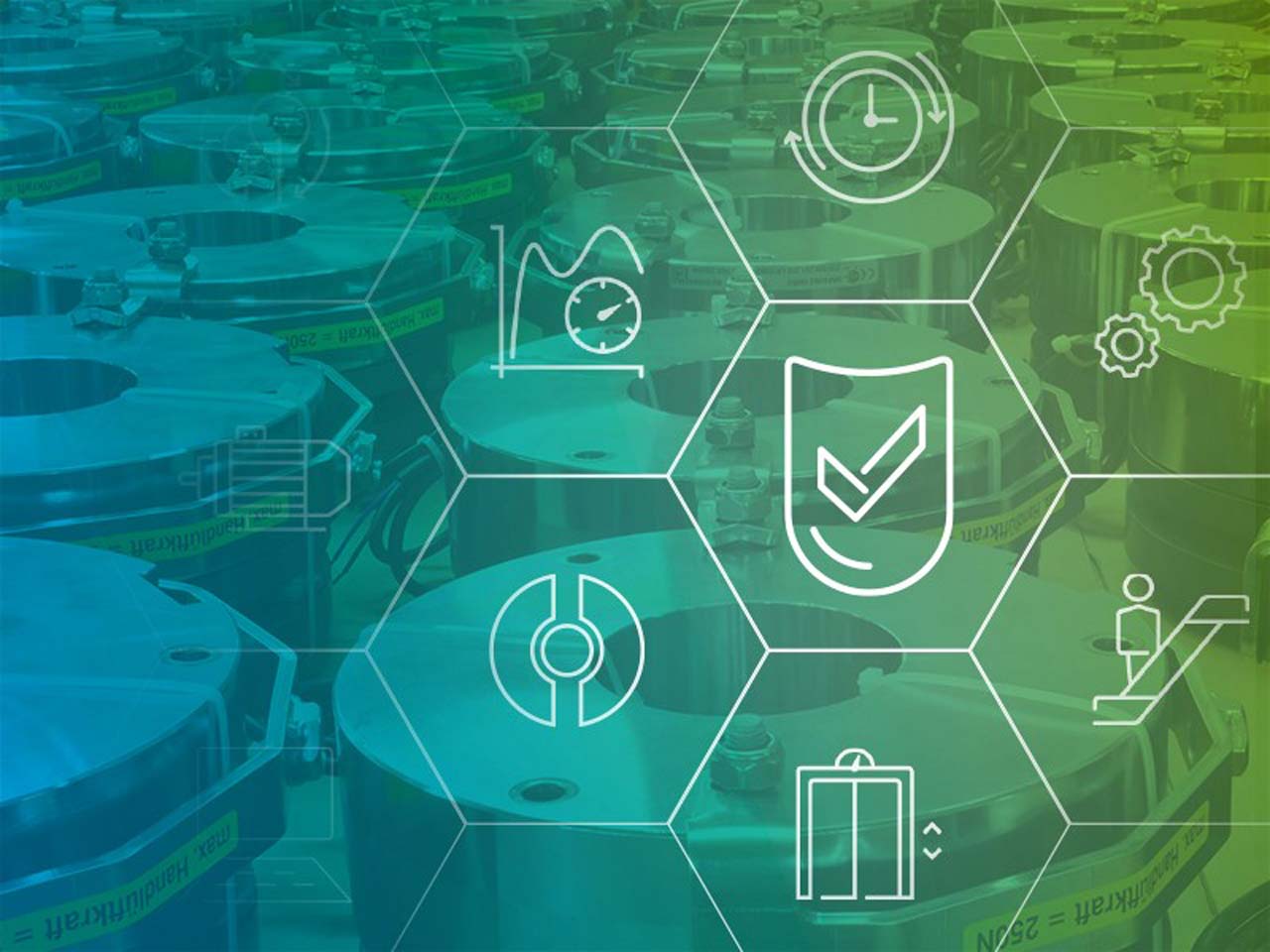
100% Quality Controls
mayr® power transmission has been a pioneer in the field of elevator brakes for more than 30 years. These brake systems have proven themselves hundreds of thousands of times over on the market during since then. For example, the company has installed technologically leading elevator brakes on the market with the introduction of the square elevator brake or the non-contact, wear- free release switch, as well as countless application-optimized brake solutions that meet all requirements of existing and modern drive concepts. All mayr® safety brakes are subject to careful quality control: This includes quality assurance measures during the design process as well as comprehensive final testing. Before delivery, all brakes are extensively tested on test rigs and function-relevant values are documented. An electronic database in which the measured values are archived together with the corresponding serial numbers of a product ensures 100 percent traceability. The same quality standards as in Germany also apply to the other production plants in China and Poland. The operational quality management system in Zhangjiagang, for example, is certified to ISO 9001, as is the case in Mauerstetten. This confirms the quality awareness of the employees at all levels of the company. Worldwide, mayr® power transmission supports its customers with a dedicated technical contact person on site and relies on competent advice as well as a fast, controlled, and reliable spare parts supply.
Conscientious Service Life Design
When selecting a brake supplier, in addition to assessing the company in terms of quality and reliability, the product specification and its comparison with the required criteria is of course also decisive. Particular care must be taken here to ensure that elevator brakes are also considered under critical conditions such as high outside temperatures or high humidity, which can also occur in practical use. It is also important that specified values are not only achieved when new. Rather, it is the behavior over the entire service life that counts. “The many years of experience and countless tests carried out by our development and testing department at the Mauerstetten headquarters form the basis for a conscientious service life design that takes realistic and verified braking torque tolerances into account,” explains Johann Eberle. “All brake components are safely dimensioned and manufactured only from high-quality, well-known and proven materials. Our brakes are designed to reliably achieve the required nominal torque under all operating conditions that occur, regardless of ambient temperature or humidity, for example.”
Safety Does Not Tolerate Compromises
Large, globally successful drive manufacturers are increasingly using quality products In line with this example, it is also advisable for smaller manufacturers to prescribe appropriate brakes from well-known manufacturers in their specifications without compromise and to ensure that these are also used. Checking the type plates is one possible measure to guarantee this. This ensures that these important components offer the necessary reliability. Operators have now realized that appropriate manufacturing expertise and the utmost care are essential for the reliable transportation of passengers – because safety does not allow for compromises.
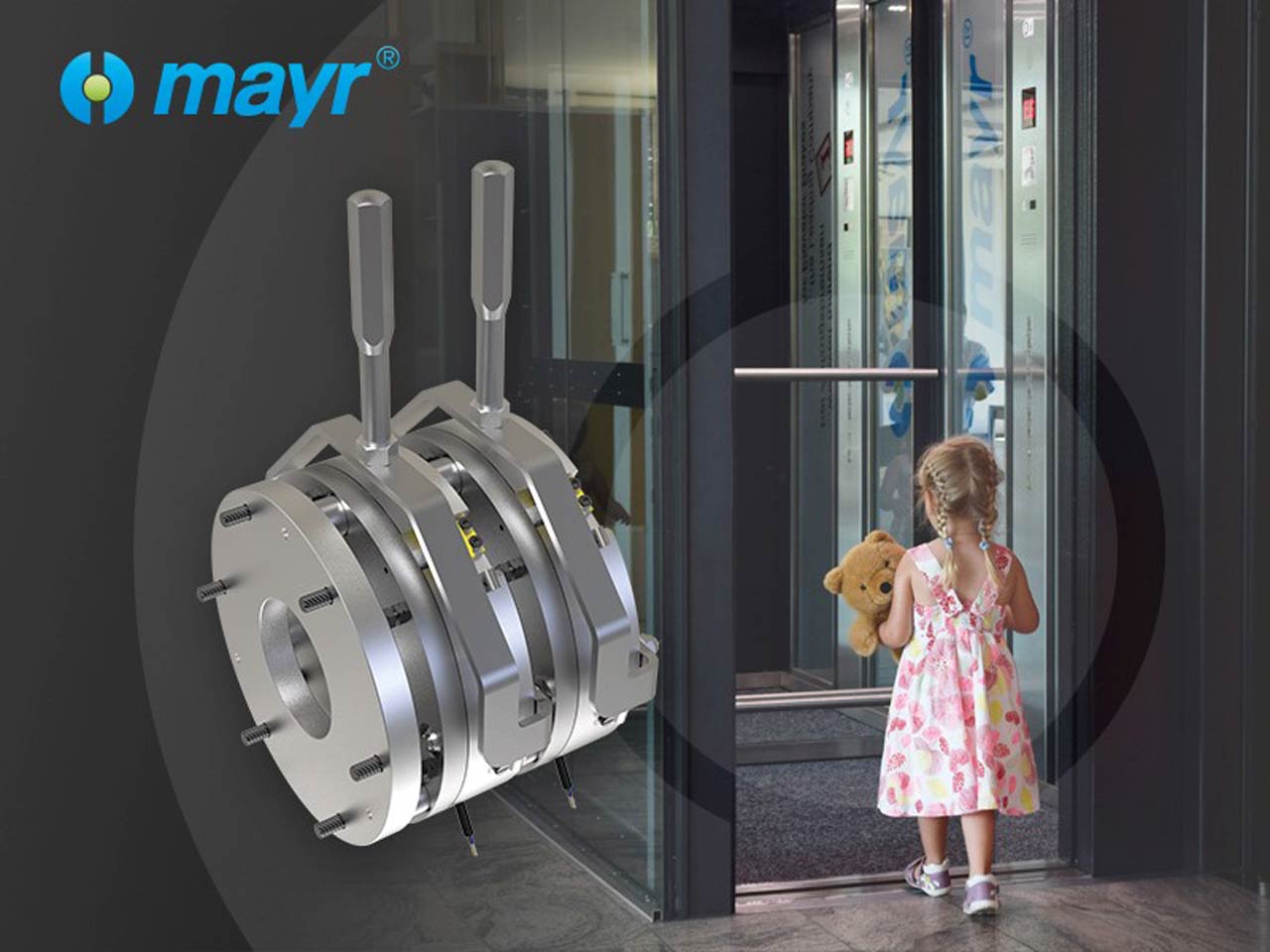
Checklist: In 10 Steps To The Right Brake Supplier
- Take the time to visit the factory of the supplier. Seeing is believing. Does the supplier have competence, state of the art quality processes, testing and manufacturing equipment?
- Does the supplier have 100% endline testing with automatic storage of all measured data?
- Does the supplier have serial numbers on the brake, and full traceability?
- Does the supplier offer a world-wide service network for support?
- Does the brake supplier base the dimensioning of brakes on high friction coefficients? Friction coefficients of >0,4 or even higher may not be sustainable under all up-coming operating and ambient conditions and may result in severe consequences.
- Did you test a sample under all critical conditions that may come up in the field? Generate extreme conditions in the lab to qualify.
- What is the stroke of the brake? If it is 0,3 mm or below, the risk of malfunctions of the microswitch under higher temperatures is immense.
- Conduct a noise testing, not only in new condition but over a period of minimum up to 5 million of cycles. Always measure sound at 20 °C after the brake has cooled down overnight.
- Check response times (pick/drop) of brake in new condition and after millions of cycles to see if UCM EN81-A3 requirements can be matched over service life. Long travel before stopping the car is a dangerous safety hazard.
- Check brake torque (static & dynamic) with a torque transducer and measure at different ambient temperatures 0 to 40 °.
Get more of Elevator World. Sign up for our free e-newsletter.


